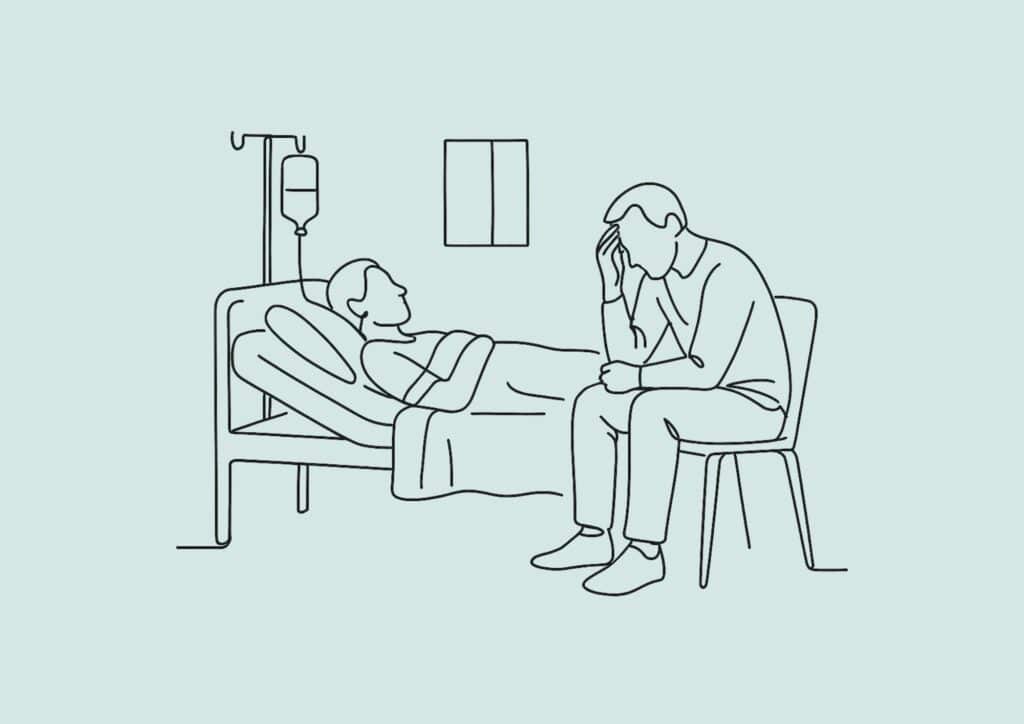When facing a serious illness, families often encounter terms like “hospice care” and “palliative care” without fully understanding what each means or when each might be appropriate. While both focus on comfort and quality of life, there are important distinctions that can help you make the best decision for your loved one.
What is Palliative Care?
Palliative care is specialized medical care focused on providing relief from symptoms and stress of a serious illness. The goal is to improve quality of life for both the patient and family, regardless of the diagnosis or stage of disease.
Key characteristics of palliative care:
- Can be provided alongside curative treatments
- Available at any stage of illness
- Focuses on symptom management and comfort
- Involves a multidisciplinary team including doctors, nurses, and specialists
- Addresses physical, emotional, and spiritual needs
Patients receiving palliative care might still be undergoing chemotherapy, radiation, or other treatments aimed at curing or controlling their disease. This type of care is about adding an extra layer of support, not replacing existing medical treatments.
What is Hospice Care?
Hospice care is a specialized type of palliative care designed for patients with a life expectancy of six months or less if the disease runs its normal course. Unlike palliative care, hospice focuses entirely on comfort rather than cure.
Key characteristics of hospice care:
- Provided when curative treatments are no longer effective or desired
- Requires a prognosis of six months or less
- Focuses exclusively on comfort and quality of life
- Includes comprehensive family support and bereavement services
- Covered 100% by Medicare, Medicaid, and most private insurances in the United States
At ViaQuest Hospice, our interdisciplinary team includes physicians, nurses, social workers, chaplains, and volunteers who work together to ensure patients experience dignity, comfort, and peace during their final months.
The Five Stages: Understanding Disease Progression
Many families wonder about disease progression and when different types of care become appropriate. While not all illnesses follow the same pattern, understanding general stages of serious illness can help in making care decisions:
- Early Stage: Diagnosis with good prognosis and active treatment options
- Advancing Stage: Some treatment limitations, increased symptom management needs
- Advanced Stage: Limited treatment options, focus shifts toward comfort
- End Stage: Comfort-focused care becomes primary goal
- Final Stage: Imminent end-of-life, comprehensive comfort and family support
Palliative care can be appropriate at any of these stages, while hospice care typically becomes relevant during stages 4 and 5.
Key Differences at a Glance
| Aspect | Palliative Care | Hospice Care |
| Timing | Any stage of serious illness | Life expectancy of 6 months or less |
| Treatment Goals | Comfort + curative treatments | Comfort-focused only |
| Location | Hospital, clinic, or home | Primarily at home or facility |
| Duration | Ongoing as needed | Until patient passes or improves |
| Insurance | Varies by plan | 100% covered by Medicare/Medicaid (US) |
Making the Right Choice for Your Family
The decision between palliative and hospice care depends on several factors:
Consider palliative care when:
- Your loved one has been diagnosed with a serious illness
- Symptoms are affecting quality of life
- You want additional support alongside current treatments
- Managing side effects from treatments
Consider hospice care when:
- Curative treatments are no longer effective or desired
- Focus has shifted to comfort and quality time together
- A physician believes life expectancy is six months or less
- Family wants comprehensive end-of-life support
Questions to Ask Your Healthcare Team
Understanding the difference between hospice and palliative care can help you ask the right questions:
- What are the treatment goals at this stage?
- How can we best manage current symptoms?
- What support services are available for our family?
- When might it be time to consider hospice care?
- What does the insurance coverage look like for each option?
Getting Expert Guidance
Making decisions about end-of-life care is never easy, but you don’t have to navigate this journey alone. ViaQuest Hospice offers compassionate guidance to help families understand their options and make informed decisions about care.
Our experienced team can help you evaluate whether hospice care might be appropriate for your loved one and answer any questions about the transition process. We believe in honoring your family’s wishes while providing the highest level of comfort and support.
Ready to learn more about hospice care options? Download our comprehensive Hospice Care Guide for detailed information about services, eligibility, and what to expect. This resource provides everything families need to make informed decisions about end-of-life care.
[Download Free Hospice Care Guide]
For immediate questions or to speak with a hospice expert, call ViaQuest Hospice at (855) 289-1722. Our compassionate team is available 24/7 to provide guidance and support when you need it most.






